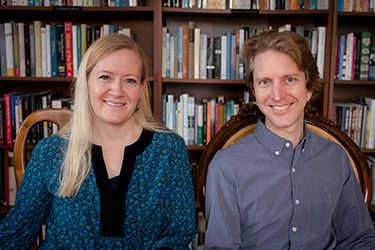Meditation has been around for thousands of years, but it’s only in the past few years that a modern form has found mainstream popularity. No longer primarily a religious practice of monastics, mindfulness and other meditation-based programs are sprouting up in hospitals, businesses, schools, and prisons. Need wellbeing on the go? Now, there’s an app—or rather, hundreds of apps—for that.
While these programs have promise, popular enthusiasm and a widespread application have proceeded without much assessment of safety. Brown researchers worry this puts vulnerable people at risk from overstated claims of benefit and understated harms.
Finding clarity
There’s an assumption that meditation is free of risks or side effects. But ancient meditation manuals, scientific reports, and mindfulness program guidelines have documented the potential risks of meditation including hypersensitivities, insomnia, anxiety, dissociation, re-experiencing of traumatic memories, and psychosis.
Drs. Willoughby Britton and Jared Lindahl, co-directors of Brown’s Clinical and Affective Neuroscience Laboratory (CLANlab), conducted the largest study to date on the risks and challenges of meditation. Entitled “The Varieties of Contemplative Experience,” the study took more than a decade to complete. Interviews with more than 100 Buddhist meditation teachers and meditators yielded 59 categories of meditation-related challenges and 26 influencing factors that impact whether these experiences are mild and fleeting or long-lasting and debilitating.

Meditation practitioners described in detail the types of challenges they faced as practitioners and how they responded to them. Some practitioners reported challenges that were transient and that fit in with their expectations about how meditation worked, whereas others reported long-term and debilitating experiences that often required seeking alternative means of support.
The causes of meditation-related challenges, their duration and impact, and how they are appraised depends upon multiple social, individual, and cultural variables. Britton and Lindahl’s ongoing research in the CLANlab has been focused on addressing these issues in the context of mindfulness-based programs—one of the fastest-growing delivery systems for meditation, and one in which meditation-related challenges have remained understudied.